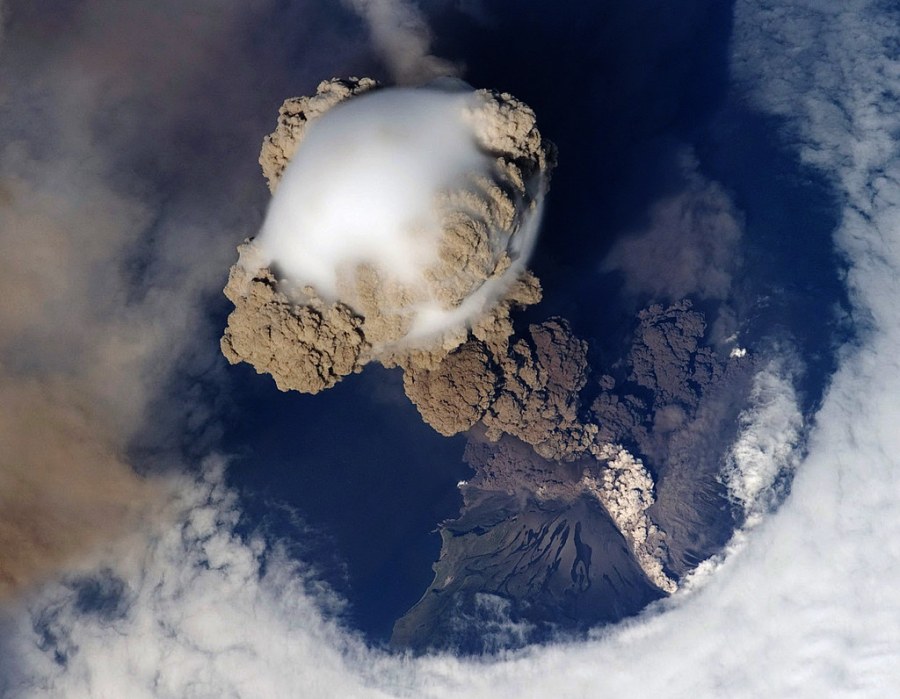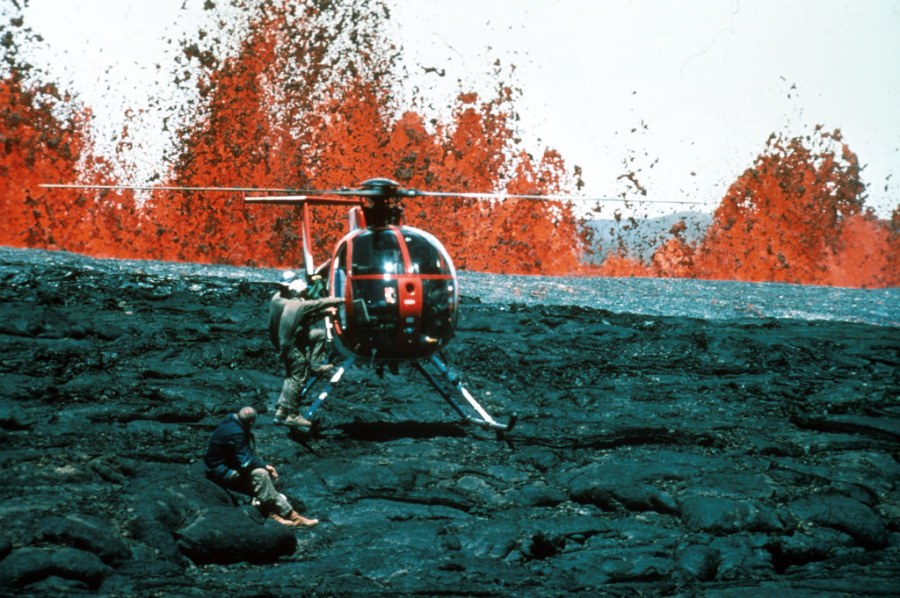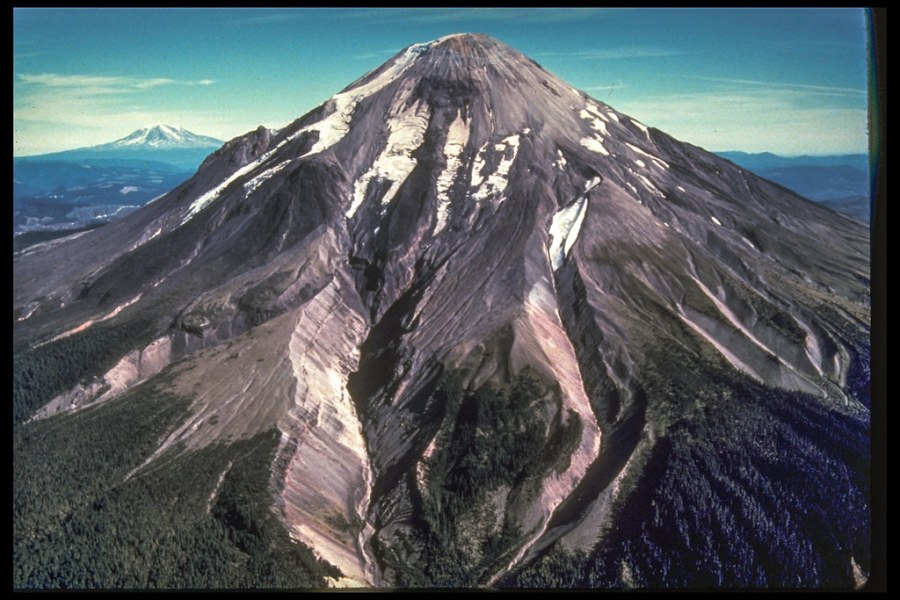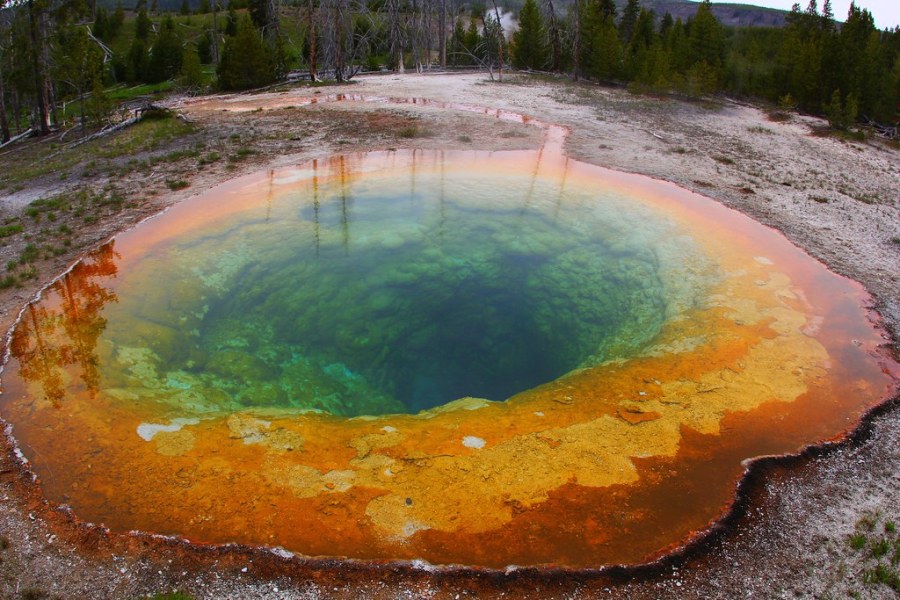What Volcano Will Most Likely Never Erupt Again

Volcanoes and earthquakes have filled man beings with fearfulness and fascination since the offset of time. Read on for many interesting facts nearly volcanoes, plus some related information about earthquakes.
Mauna Loa
Kicking off our fun facts almost volcanoes is Mauna Loa in Hawaii. This is an effusive volcano, which means that lava flows or pours out rather than erupting violently. The lava can cook, burn and destroy houses, farms, roads and everything else in its path.

Mount St. Helens
When Mount St. Helens erupted in 1980, it created over 490 tons of ash that covered 22,000 square miles and afflicted cities upwardly to 370 miles abroad.

Tectonic Plates
About 80 per centum of volcanoes and earthquakes occur near where two tectonic plates meet.
Yellowstone National Forest
A supervolcano beneath Yellowstone National Forest drives the hot springs and other geological activity in the park. Nonetheless Yellowstone's volcanic activeness remains mysterious, every bit scientists are still exploring the pit of magma known equally the Yellowstone Caldera.

How High Can Volcanoes Shoot?
Strong eruptions of volcanoes can shoot debris up to 20 miles into the heaven.
Black Lava
The Ol Doinyo Lengai volcano in Tanzania erupts black lava.
Mount Vesuvius
Mountain Vesuvius was the most dangerous volcano in Europe.
Volcanic Winter
A volcanic eruption in Peru in 1600 caused a volcanic wintertime.
Blueish Lava
The Ijen Volcanic Circuitous in Indonesia oozes blue lava.
Cacophony on Krakatoa
The 1983 eruption on Krakatoa created the loudest audio ever measured.
Bonus Volcano Facts
Bonus round time! Now that you've learned some amazing facts, nosotros've dug deeper into the globe's core to deliver some other quick 25 facts about volcanoes. Ready, ready, go! The Earth'southward surface is known every bit the crust. Plates are the behemothic cracked pieces of the crust. Magma flows underneath the crust, and is called lava when it is to a higher place the surface. The edges of the plates are breeding grounds for volcanoes. Volcanoes tin can besides grade on top of mantle plumes, which are extremely hot areas inside the Earth. Over l U.South. volcanoes take erupted at least once in the concluding 200 years. Volcanic ash can cause the engines of airplanes to fail. The root of a volcano can be cached 40 to 120 miles inside the World. The central vent is a channel inside the volcano where magma erupts. The lava tin catamenia through a large crack chosen a fissure in the globe. Temperatures in the mantle can become as hot as iv,000 degrees Fahrenheit. Natrocarbonatite is a rare type of lava plant but in northern Tanzania.
Bonus Facts, Connected
Even more bonus volcano facts alee! Ancient Aztecs believed that beautiful people were to be thrown into volcanoes as a sacrifice to the gods. The word volcano comes from the Roman god of burn, Vulcan. One in 20 people lives in a danger zone close to a volcano. People live in that location because the soil is rich and fertile. Maleo birds hatch their eggs using heat from volcanoes. Volcanoes tin can likewise be found on the ocean floor. Nosotros know of about eighty volcanoes in the bounding main. Lava can achieve a temperature of ii,282 degrees Fahrenheit. A horseshoe-shaped germination in the Pacific Ocean known equally the Band of Fire contains 90 percent of the world's volcanoes. Four types of volcanoes exist: cinder cones, shield volcanoes, composite volcanoes and lava volcanoes. At that place are i,150 active volcanoes in the earth.
Earthquakes
The 1960 convulsion in Chile was the most severe of the 10 largest earthquakes recorded.
San Andreas Error
The San Andreas Fault in California moves most two inches per twelvemonth.
Good Fri Convulsion
The largest recorded U.S. earthquake was on Expert Fri, 1964, in Prince William Sound in Alaska.
frankstimperall88.blogspot.com
Source: https://www.questionsanswered.net/article/15-amazing-facts-about-volcanoes?utm_content=params%3Ao%3D740012%26ad%3DdirN%26qo%3DserpIndex
Post a Comment for "What Volcano Will Most Likely Never Erupt Again"